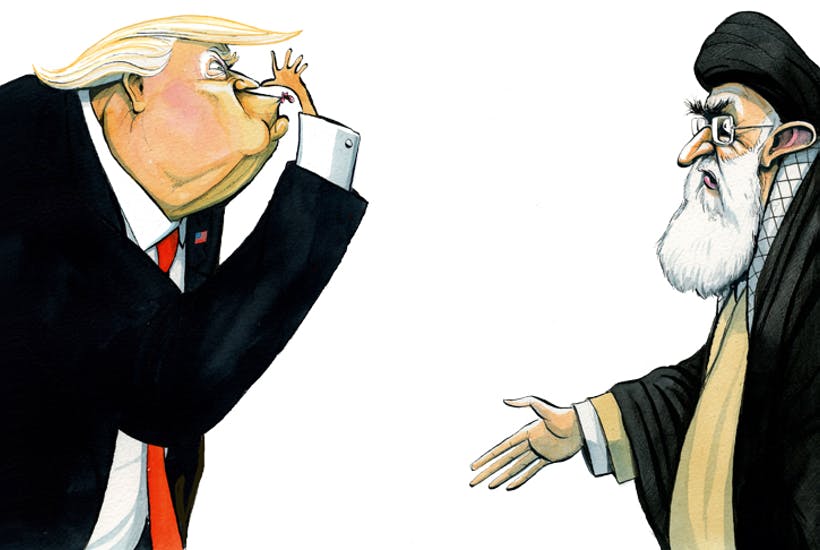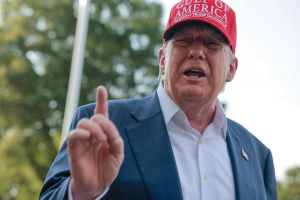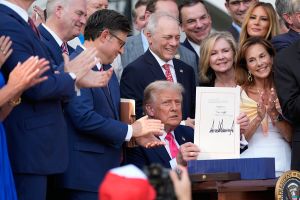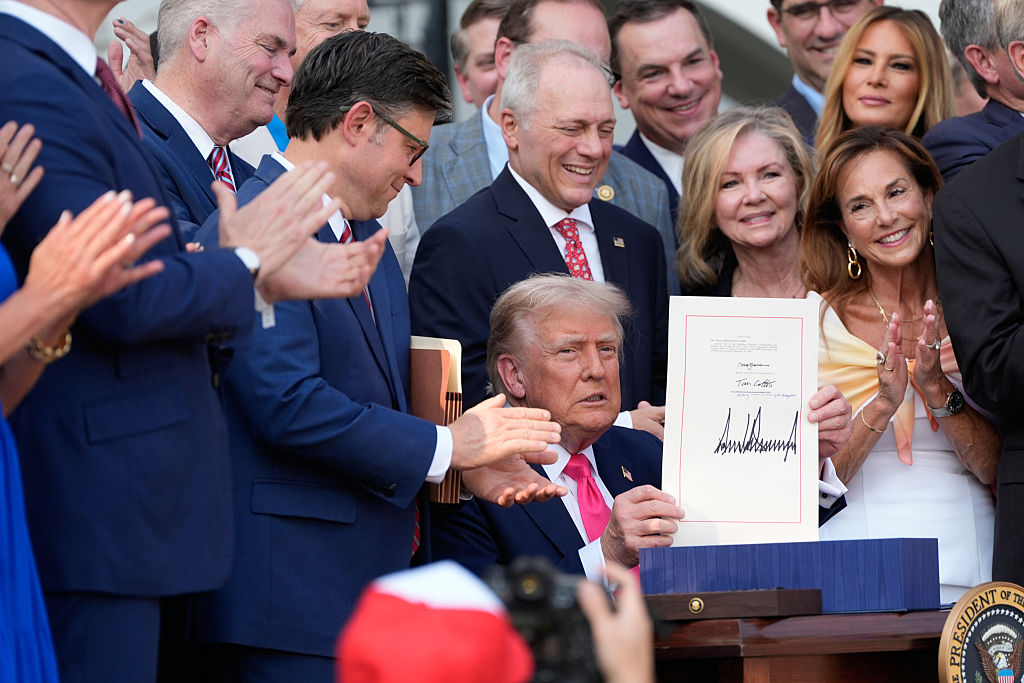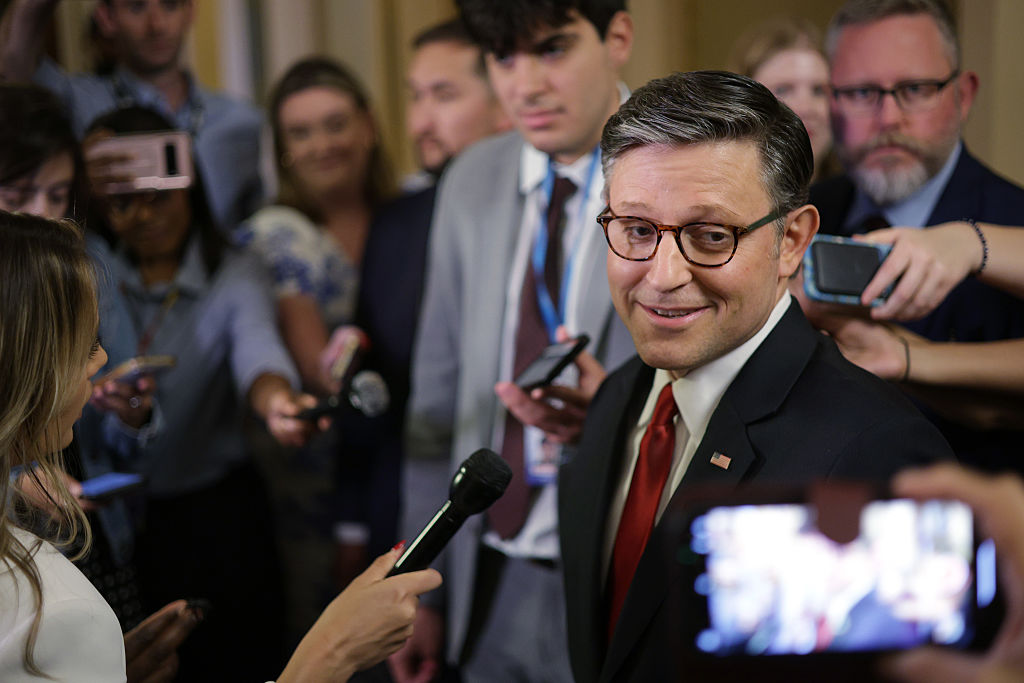Here’s a vexing question for Republicans. Does Donald Trump know why he won the presidency in 2016? As the chances of war with Iran – war by design or war by miscalculation – appear to increase, this question grows ever more pressing.
In 2016, Trump ran on such an anti-interventionist platform that you half expected to wake up and find that he’d received all-important endorsements from Noam Chomsky, Angela Davis and the ghost of Susan Sontag. This was Trump at his best. He launched an astonishing broadside against the Bush family in South Carolina:
‘We should’ve never been in Iraq. We’ve destabilised the Middle East… they lied. They said there were weapons of mass destruction, there weren’t none and they knew there were none: There were no weapons of mass destruction.’
Here was the more statesmanlike version given during his acceptance speech at the RNC:
‘After 15 years of wars in the Middle East, after trillions of dollars spent and thousands of lives lost, the situation is worse than it has ever been before.’
Comments like these surely freaked out thousands of lobbyists and planners who’ve grown fat from America’s endless wars. But they proved wildly popular with voters in key states like Pennsylvania, Michigan and Wisconsin.
A study by Boston University’s Douglas Kriner and the University of Minnesota’s Francis Shen shows how important this non-interventionist stance was to Trump’s victory in 2016. The study, called ‘Battlefield Casualties and Ballot Box Defeat: Did the Bush-Obama wars cost Clinton the White House?’, notes that the domestic effects of the continuous wars of the last 15 years have been unequally distributed.
Kriner and Shen say that few Americans took much notice of these wars: ‘the vast majority of citizens have no direct connection to those soldiers fighting, dying, and returning wounded from combat.’ Yet there is an increasing divide ‘emerging between communities whose young people are dying to defend the country, and those communities whose young people are not.’
The study finds that ‘there is a significant and meaningful relationship between a community’s rate of military sacrifice and its support for Trump.’ Their data suggests ‘that if three states key to Trump’s victory – Pennsylvania, Michigan, and Wisconsin – had suffered even a modestly lower casualty rate, all three could have flipped from red to blue and sent Hillary Clinton to the White House.’
The policymaking implications ought to be clear to everybody, even national security adviser John Bolton. If Trump wants to win again in 2020 he must avoid more ground wars in the Middle East, otherwise he will alienate key portions of his base that put him in the White House.
When he was asked by reporters this week if war with Iran was possible, Trump said:
‘We’ll see what happens… It’s going to be a bad problem for Iran if something happens, I can tell you that. They’re not going to be happy.’
These comments came after the decision to halt Iran’s crucial oil exports. Trump also ordered a military build-up in the region, including the dispatch of an aircraft carrier and a bomber taskforce, in response to a ‘credible’ threat from the Iranian regime. These moves make it more likely that the sons and daughters of Trump voters in key battleground states will be in the line of fire at some point in the near-future.
Trump-style populism has several layers of vice, some of which are well known. There is the layer of ignorance to political complexity; the layer of hostility to professional politics that leads to dreams of a strongman; the layer of automatic disdain for cosmopolitanism. And there is the layer of conspiracy theory, which runs transversely through all these other layers.
But Trump’s populism has its virtues: a respect for ordinary humanity and an assertion that the average American is as worthy of dignity and respect as anyone else; a knuckleheaded good sense that comes from boardrooms not seminar rooms; a refusal to be cowed by opponents of superior wealth and credentials; a concern for the home, the family and for law and order. Above all there is the refusal to be railroaded into foolish schemes by elites who regard themselves as the vanguard of history.
In 2016, this manifested itself most clearly in Trump’s condemnation of the dumb foreign wars of the past and the present. Bolton and the Trump administration hawks surely have thousands of reasons and whole entire powerpoint presentations that explain in detail why war with Iran is a wonderful idea.
Perhaps for months now they’ve worked on Trump and sat him down in meetings in which Bolton explains himself into a frenzy regarding the strategic significance of the Strait of Hormuz, the increasing fears of the Israelis and the Saudis, and the pernicious influence of Iran across the Arab world. Perhaps it’s a good thing that Trump has such a short attention span.
Or maybe the hawks are right. War with the mullahs could be a clean, clear affair (though the evidence hints in the other direction). But a military strike on Tehran would do nothing to help Trump win again in 2020. As we have seen, his gains in 2016 were from those exhausted of fighting the war on terror for the last 15 years.
Launch another war and Trump becomes yet another politician who believes American greatness lies in policing the world, rather than restoring the America that has been left behind.



